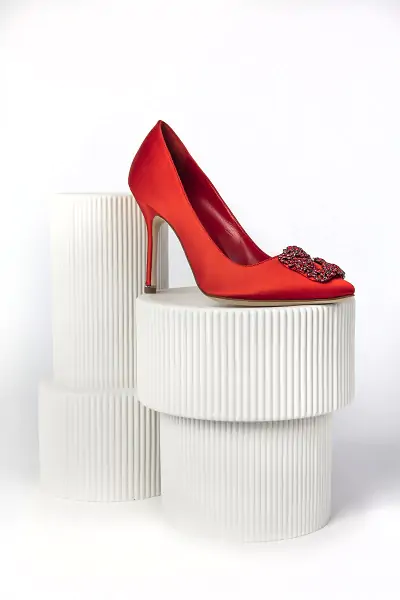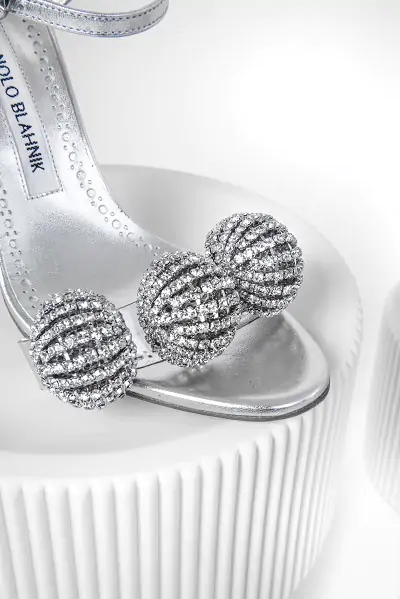The Psychology Behind Buying Luxury Goods, the Veblen Effect and the Perception of Excellence

In a world where we are raised to venerate status symbols and equate excellence with wealth, luxury goods has ensnared our hearts and wallets at some point. The exquisite craftsmanship, the allure of exclusivity, and the unapologetic display of wealth are like magnets, pulling in consumers from all walks of life. While the rational mind may balk at the steep price tags and question the practicality of extravagance, the psychology behind why people buy luxury goods is far from straightforward but always linked to external validation.
Before looking into the depths of human psyche, let’s take a glimpse at the soaring heights of the luxury goods market. According to recent statistics, the global luxury goods market was valued at a staggering $382.7 billion in 2021. It is projected to continue its meteoric rise, reaching an estimated worth of $530 billion by the end of 2030. These figures might leave some wondering what magic lies behind the façade of the luxury industry.
Perception of Excellence- A Dance with Irrationality?
What drives consumers into the purchasing frenzy of luxury goods ? We like to believe that our buying decisions are rooted in logical reasoning, but human emotions often guide our choices. The feeling of owning a luxury car, travelling first class or buying Manolo Blahnik shoes can trigger a sense of euphoria, an intoxicating high that has nothing to do with practicality but the experience and the feel good factors. Falling in love – a heart-over-designer-heels kind of experience where reasons take a backseat to emotions.
In a study conducted by psychologists at Harvard University, brain scans of individuals making luxury purchases revealed heightened activity in the areas associated with pleasure and reward. These findings support the idea that the act of buying luxury goods is, to a certain extent, an emotional indulgence, a quest for a momentary thrill that transcends the mundane.


Luxury- A Call for Excellence or Status Symbols?
Luxury brands have perfected the art of exuding quality and superiority in their products. From the finest leathers to the meticulous craftsmanship, these brands masterfully create a perception of excellence. Consumers often succumb to the belief that the hefty price tags equate to unparalleled quality, compelling them to open their wallets wider than they might otherwise.
Yet, while luxury items do offer a level of craftsmanship and attention to detail that can be hard to match, the reality is that the price often includes a substantial premium for the brand’s cachet and exclusivity. This phenomenon has been termed the “Veblen effect,” named after the economist Thorstein Veblen, which suggests that people’s desire for luxury goods increases as their prices rise.
The Veblen Effect: A Dance of Illusion
In the world of consumerism, rationality often takes a backseat to a fascinating phenomenon known as the Veblen Effect. This curious behaviour challenges the traditional laws of supply and demand, where consumers defy logic and opt for higher-priced goods, even when similar, lower-priced alternatives are readily available. Named after its visionary discoverer, Thorstein Bunde Veblen, a prominent US social-critic of the late 19th and early 20th centuries, the Veblen Effect is driven by a confluence of factors, ranging from the allure of perceived quality to the desire for conspicuous consumption.
One of the key catalysts behind the Veblen Effect is the misconception that a higher price tag automatically equates to superior quality. In the world of luxury goods and prestige items, consumers often perceive a direct correlation between price and excellence. The Veblen Effect plays on this belief, leading consumers to gravitate towards higher-priced items in the belief that they are investing in an unparalleled experience of luxury and craftsmanship.
Brands adept at leveraging the Veblen Effect skilfully create an aura of exclusivity, crafting an image of desirability that transcends the boundaries of practicality. The allure of owning an item with a hefty price tag can be intoxicating, creating a sense of satisfaction and accomplishment that defies traditional economic logic.
Conspicuous Consumption: Paying for Prestige?
Another captivating aspect of the Veblen Effect lies in the realm of conspicuous consumption. Humans are social beings, driven by the desire to be seen, acknowledged, and admired by their peers. Owning an expensive, prestigious item can become a symbol of status and success, providing a platform for individuals to showcase their achievements and aspirations.
In the quest for conspicuous consumption, the Veblen Effect lures consumers towards luxury goods that act as visible status symbols. The allure of being recognized as a patron of luxury, a connoisseur of style, or an arbiter of taste can be a powerful driving force behind the choice to purchase higher-priced goods over similar, more affordable alternatives.
While the Veblen Effect was initially associated with luxury and prestige products, its tendrils have extended to various segments of the consumer market. The influence of social media and the growing prevalence of influencer culture have further intensified the desire for conspicuous consumption. Consumers are increasingly drawn to products that align with the perceived lifestyles and values of their admired social media personalities and influencers.
In the digital era, the Veblen Effect has found new avenues to manifest itself. From designer clothing and high-end accessories to tech gadgets and even experiences, the desire for conspicuous consumption has taken on a diverse range of forms, shaping consumer choices and market dynamics.
As the wheels of commerce continue to turn, the Veblen Effect remains a captivating enigma in the world of consumer behaviour. It challenges the conventional wisdom of rationality and economic principles, offering a glimpse into the intricate web of human desires, emotions, and social dynamics.
Consumers, willingly or unwittingly, become participants in this dance of illusion, swayed by the allure of perceived quality and the pursuit of social recognition. In a world where image and identity intertwine, the Veblen Effect continues to cast its spell, guiding the paths of consumer choices and shaping the fascinating tapestry of the market.

Buying Luxury Goods to Boost Self-Esteem?
For some, the allure of luxury goods stems from their ability to serve as a mirror to their self-esteem. Owning a luxury item can be perceived as a public proclamation of success, taste, and social status. In a society where appearances matter, luxury goods offer a tangible way to showcase one’s achievements and aspirations.
A study published in the Journal of Consumer Psychology found that individuals who owned luxury items experienced a boost in their self-esteem and perceived themselves as more powerful and confident. This phenomenon is commonly referred to as “self-signalling,” where the possession of luxury goods becomes a way of affirming the identity and status to both yourself and others.
The act of purchasing a luxury item can also be seen as a symbol of achievement, the tangible reward for hard work and perseverance. Climbing the ladder of success often comes with its own set of trials and tribulations. Acquiring a luxury item, be it a designer watch or a coveted handbag, can serve as a celebratory token of triumph over challenges.
The Journal of Experimental Social Psychology published research revealing that individuals who felt a sense of accomplishment were more likely to make indulgent purchases, even if they weren’t financially sound. This “treat yourself” mentality is rooted in the belief that one deserves to relish in the fruits of their labour.
While the allure of luxury goods may be undeniable, the decision to purchase them should be approached with caution and self-awareness. In a world that worships the extravagant, it’s crucial to discern between genuine desire and the pressure to conform. Luxury goods can be a source of pleasure and pride, but they should never burden one’s financial wellbeing or act as a smokescreen to conceal deeper insecurities.
Remember, true value and worth cannot be defined by the logo on a handbag or the price tag of a watch. The most precious treasures lie within the realms of the heart and soul beyond the material and fleeting allure of luxury consumer goods.
Do you want to share your story and inspire our readers ? Know that every story is paving the way for a brighter, happier future.





